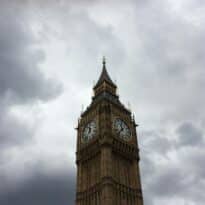Following the Chancellor’s Autumn Budget, more than a quarter (26%) of DIY investors say they plan to drawdown money from their pension as early as possible to use it more tax-efficiently, new research from Charles Stanley Direct has revealed.
Rachel Reeves announced that from April 2027, pensions will be subject to inheritance tax, meaning that pensions, including defined contribution, personal pensions and SIPPs, will be included in the value of an individual’s estate when they die.
The changes could mean that, depending on whether inheritors are basic, higher or additional rate payers, they will pay a combined 52%, 64% or 67% inheritance and income tax on inheriting an individual’s pension, provided the combined assets are over the nil rate band threshold of £325,000.
As a result, Charles Stanley Direct said that 21% of investors plan to draw down money from their pension and gift it to their family, while a further 18% plan to spend their pension pot faster to remove it from their estate.
Since the Budget, the appeal of pensions as an investment vehicle has also come under the spotlight, with the research showing that 17% of DIY investors plan to reduce their SIPP or personal pension contributions to divert to a more tax-efficient vehicle. A further 16% say they will reduce their workplace pension contributions in favour of a more tax-efficient vehicle.
However, almost a third (30%) of investors say they want to talk to an adviser before they make any decisions regarding their pension, while 11% do not expect to be liable for inheritance tax. Additionally, 7% said they do not understand how pension changes will impact them, rising to 10% among those aged 60-78.
Rob Morgan, chief investment analyst at Charles Stanley Direct, said: “The Chancellor’s decision to include pensions within the inheritance tax umbrella is affecting investor behaviour already, two years before the changes come into effect. With IHT tax thresholds frozen until 2030, it’s natural that families consider how to best protect their wealth as a greater proportion of estates become liable to the tax.
“However, clear risks arise when pensions are drawn down prematurely or contributions are reduced. Decisions made without forensic attention to detail and consideration of all long-term outcomes can lead to unfortunate consequences in retirement. With each individual having their own desired outcome for their estates, it’s vital that professional financial advice is sought so that they can have the right plan in place.”































